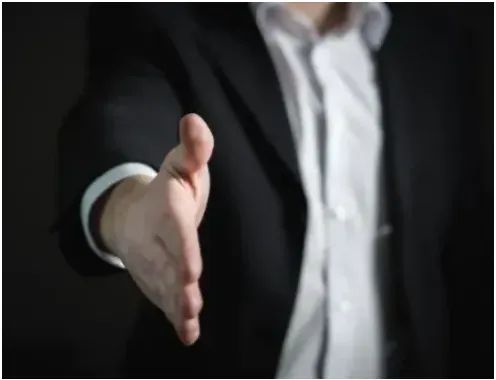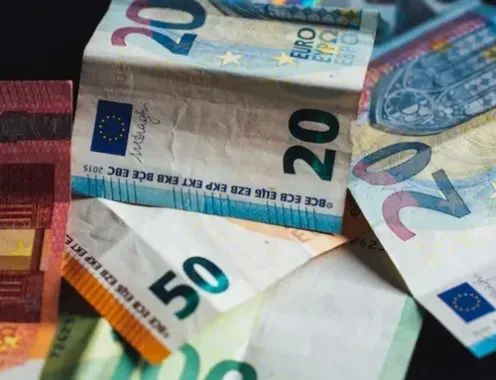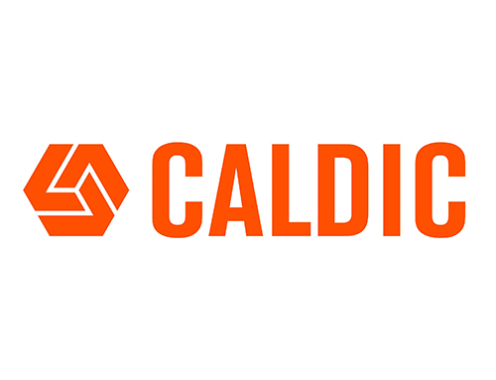
Q4 2023 HR Recruitment Market Update
As we head into the final quarter of the year, Katie Insley, Associate Director, sheds light on the HR recruitment market and its future...
HR conversations continue to focus on the future of the function, how HR technology will shape this from a service and process perspective, and how artificial intelligence will be further adopted and integrated.
Advancements in HR technology and AI have the potential to make many of the tasks undertaken by people today redundant but, at the same time, have the potential to create new roles more suited to a data-driven and digital world.
Over the last quarter, we’ve continued to see an increase in HR jobs around HRIS Optimisation, HR Data Consultancy, People Analytics and Talent Analytics, all which require a technical mindset, a customer focus, and the ability to engage with stakeholders and be a great storyteller.
The continuing evolution of HR technology can however create a level of anxiety in the workforce and businesses need to take action. It is important for organisations to understand how these changes may impact the current workforce and their levels of engagement. Employees may be concerned about the security of their role but, if a company starts to act now, the changes can be seen as an opportunity, as opposed to a concern.
If a business is able to identify how HR technology and AI will change the roles and talent required in their organisation, they will have enough time to understand the skills gaps. They’ll be able to put measures in place to retrain the current workforce, therefore retaining employees, increasing employee loyalty and engagement, creating more effective succession plans, and ensuring the business has the skills needed to be successful in the ever-evolving modern world.
Many of our Executive Interviews explore this topic, as it’s clearly on the minds of HR leaders. It was also a topic of conversation at our recent CHRO dinner. This was such a great opportunity to bring together a group of HR executives to discuss pertinent issues in the HR space, sharing experiences and challenges. If you’re interested in being involved in future HR leadership events, do reach out: [email protected]

How to Manage the Counteroffer
Companies are fully aware that we are in a candidate-driven market, with a shortage of good quality candidates to fill their hiring requirements.
As a result, businesses are trying to hold onto as many strong employees as possible, causing an increase in counteroffers.
Since the start of the year, the Finance & Accountancy market has seen employees being offered an uplift of €10,000-20,000 - in some cases over €25,000 - to stay with their current employer.
If you’re currently thinking about changing roles, you should expect to receive a counteroffer if you hand in your notice. Whether you’ve been working at your company for six months or several years, they will do more than ever before to keep you.
Prior to looking for a new role, here are some questions you should be asking yourself:
- On a scale of 1-5, how happy are you in your current role?
- What is the real reason for wanting to leave?
- What conversations can you have with your current employer?
What should you be thinking when the counteroffer arrives?
- Why is your employer only realising your value now?
- Will you be a trusted member of the team moving forward?
- What if you accept the counteroffer? What if you decline it?
But, most importantly, revisit these simple questions:
- On a scale of 1-5, how happy are you in your current role?
- What is the real reason for wanting to leave?
Always think about the real reason you are looking to approach the market in the first place.
Did you know that a high percentage of people who take a counteroffer re-approach the market within a few months?
Does being counteroffered actually make you feel good? Does it make you feel like a valued member of the company, or does it make you feel the opposite in reality?
Think about whether the counteroffer provides a genuine benefit to you or to the employer. For example, keeping you on board means they won’t have to train someone new, pay potential recruitment fees, etc.
If you’d like more advice on managing a counteroffer, either as a hiring manager or candidate, please get in touch with David Harper, Associate Director: [email protected]

Q2 2023: Finance Recruitment Market Update - Switzerland
As we concluded 2022, we experienced normal market conditions across Switzerland. And, as predicted, an extremely high volume of hiring started from January onwards.
At EMEA Recruitment, we analyse market data so that we can understand trends and skills shortages to provide factual evidence to our candidates and clients. Some of this data - and feedback from companies that were recruiting during Q1 - has been used to produce the following overview:
German-speaking region
- Over 100% increase in directly advertised Finance roles during January to March 2023 compared to the same period of 2022
- Many roles seen in January were re-advertised in March, as they failed to attract the desired audience
- Companies requiring fluent German language skills experienced the greatest difficulties in hiring
- Significant increase in roles advertised by Swiss-owned international companies compared to those with non-Swiss ownership
French-speaking region
- Similar volume of vacancies during January to March 2023 as we saw in the same period of 2022
- Slight reduction in roles advertised by Swiss-owned international companies, but a corresponding increase in roles advertised by non-Swiss-owned international companies
Hybrid thoughts
- Requiring 4-5 days’ attendance in the office does impact the diversity of candidates attracted to the role
- We have seen very little evidence of fully remote roles being offered
Job-seeking process
- Candidates are happy to look at attractive opportunities, but those in work are being selective about the roles they consider and are less likely to apply directly to advertisements given the limited amount of information available through that method
- Given the high volume of roles available and the difficulties companies expect when replacing staff, top talent is being recognised more and more by their current employers - therefore, they are more selective about the roles that they would consider externally
What do we expect in Q2?
Business sentiment is still positive, so we expect to see a very busy quarter again for Finance recruitment. We also predict continued pressure on salaries as the battle for talent remains fierce.
Having access to current market information, whether you are job-seeking or recruiting, is more important than ever before.
If you would like to discuss your own career situation or hiring into your team, we would be happy to speak with you. Please reach out to Mark Robinson, Insight & Optimisation Director, for a confidential discussion: [email protected]

The Importance of the Employee Experience
Katie Insley, Associate Director, explores the second quarter of the year and discusses the uplift in HR opportunities across the Netherlands.
There have of course been significant challenges in some industries, but many have reported growth plans, especially in the second half of the year.
We continue to be in a candidate-led market where the competition for talent is still significant. Businesses must place attention on their employee value proposition in a bid to keep their best people, ensuring they have a working culture and environment that responds to their employees' needs, such as hybrid/flexible working and employee wellbeing initiatives.
We also continue to see an investment in Compensation & Benefits functions, as rewarding employees in a competitive and attractive way remains a key tool to retain top talent.
A good number of organisations have gone through reorganisation activities, and - while this has led to decreases in some traditional HR roles - it has caused an increase in the positions more aligned to the future of HR and where it can add the most value to a business.
These have included roles focused on talent and HR intelligence, where businesses are looking for individuals who are great with data, but who can translate this information into meaningful stories that allow for better decision making.
A focus on HR technology continues, but through the lens of employee experience. How can a business have seamless processes enabled by tech that make an employee’s interactions with HR as easy as possible? This again requires a different skillset, where individuals must not only be great at system optimisation and process improvement but must be able to focus on the user experience, too.
If you’re interested in finding out more about the current recruitment landscape, please reach out to me at: [email protected]

The Key to Success in Today's Recruitment Market
Thomas Powell, Recruitment Consultant, takes a look at the Finance and Accountancy recruitment market in the Netherlands and shares the key to success...
In today’s recruitment market, demand for talent is heavily restricted and continues to be candidate driven across the junior to senior level.
To be at the top of the competition, it is crucial for you, as the hiring manager, to offer the candidate the right opportunity with clear plans of progression - not a sidestep where they are doing the same role for more reward.
We are noticing that the biggest motivation to move in today’s market falls to the following:
- Lack of responsibility in their current role - in turn, looking to move to take on more responsibility and have each day be a new challenge where they learn and add value to a company
- Looking for progression, wanting the step up - candidates in the mid to senior market are constantly looking for the step up in their career and will rarely make the sidestep for additional compensation
How can you do this when recruiting into your team?
First, what profile are you looking for? If you have a strong desire for a particular level of experience in local reporting, you know this is non-negotiable for your business.
However, think about why someone who does this role already would move to your company to do the same role. Think of ways this person can progress and move up in the company.
To retain the best talent in your company, this is what you need to be outlining. This is where you sell yourself to the candidate.
As recruiters, we hear, “This role will have progression opportunities” all the time. Be direct about what progression opportunities are available and ask the question of why the candidate should move.
Secondly, identify a success story. If you have a profile that may fall slightly below the criteria - maybe they don’t hold enough Dutch GAAP or don’t have enough payroll processing experience - offer the training and development to the candidate.
While this can take time, look at how attractive your role becomes and look at the success story you can create in your company. You as the manager have achieved this and, in turn, this profile is likely to stay with your business in the long term, given the time and value you have invested in them.
This is where EMEA Recruitment can add value. We are a candidate-driven business and skilled in mapping the candidate’s motivation to the right business, where they will add value to your organisation and thrive.
If you’d like to speak to me about how we can assist you in your search for talent, please get in touch with me at [email protected]

Successful Hiring in an Evolving and Competitive Market
Over the last quarter, we have seen 14% inflation in the Netherlands. However, we have seen a buoyant market, despite a rather unstable financial climate.
Even with the cost-of-living crisis, hybrid vs. office debate, and a looming recession, we are still seeing candidates change roles.
It is still a candidate-driven market, so companies are having to put forth a strong value proposition to attract the right talent.
- Is your business financially in line with the market?
- Are you offering the right benefits?
- Do you need to re-evaluate your recruitment process?
- How is the candidate’s journey?
These are all questions businesses must answer before entering the marketplace.
There is a growing concern in the market, due to inflation, which has caused a rise in salaries. Businesses may have to offer competitive salaries outside of their yearly reviews to current staff for retention, alongside competitive pay to attract new staff.
Candidates are also looking for a business that can offer career development and provide a flexible working environment, which allows for a good work-life balance. Therefore, hybrid working is key to successfully retaining staff.
Recommendations:
- Make a clear choice - Is your compensation in line with the market and/or does your business have enough differentiators to compete with the marketplace?
- Career development – Are you creating an environment where candidates can grow and progress their career?
- Flexibility – Since the pandemic, the market is not just driven by high compensation, but also hybrid working.
EMEA Recruitment support
EMEA Recruitment is focused on working closely with both passive and active candidates. The aim is to ensure that we are clear on the drivers and motivators for candidates to move. This way, we are sure that the candidate we put forward for your roles are aligned with your value proposition.
Currently, most of our roles are filled through the headhunt approach, with candidates who may not be currently looking for a role. This success results from the insight we gain into our candidates’ longer-term aspirations.
Our focus:
- Career consultation and advice – Understanding the vertical and horizontal growth of candidates.
- Focusing on the employer and candidate journey – Understanding the timeline of the recruitment process to maximise chance of securing the ideal candidate.
- Understanding what makes a candidate stand out.
- Understanding a company’s value proposal and what makes a potential employer unique.
For more information on our approach, please contact Michael Bentil, Senior Consultant, in our Finance & Accountancy recruitment division in the Netherlands.

EMEA podcasts
The EMEA Recruitment podcast welcomes guests from across our network and beyond to share their career journeys, advice, and inspirational stories.
























You can also use your social account to sign in. First you need to:
Accept Terms & Conditions And Privacy Policy